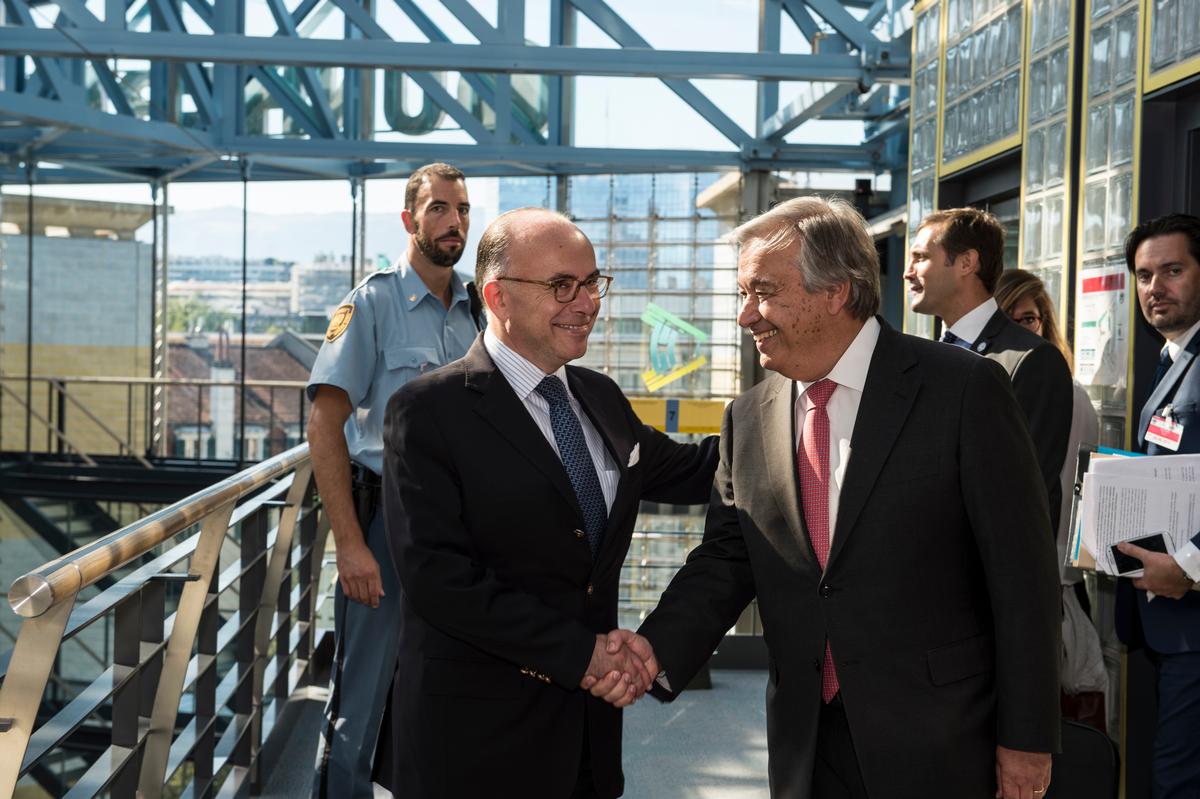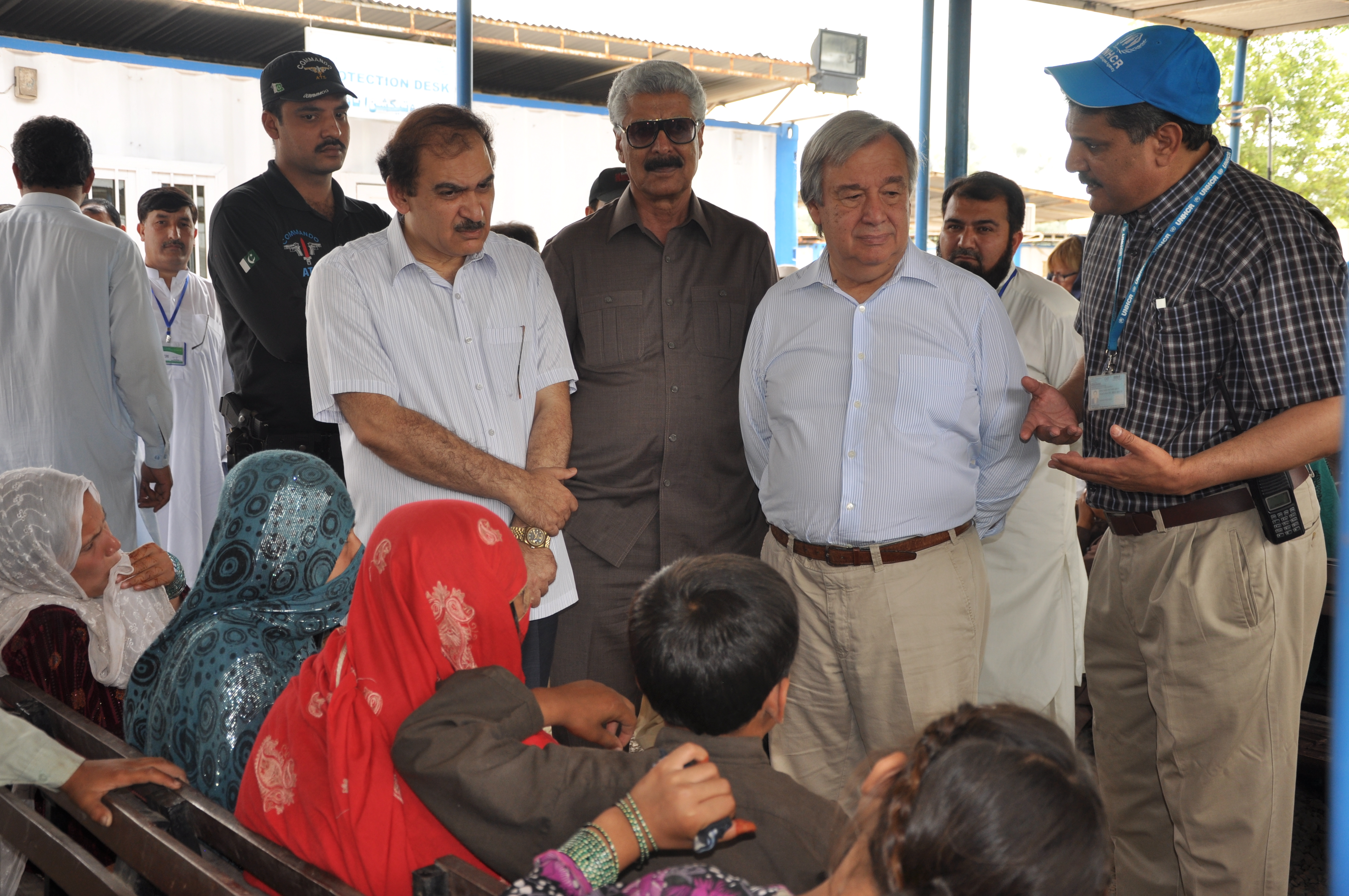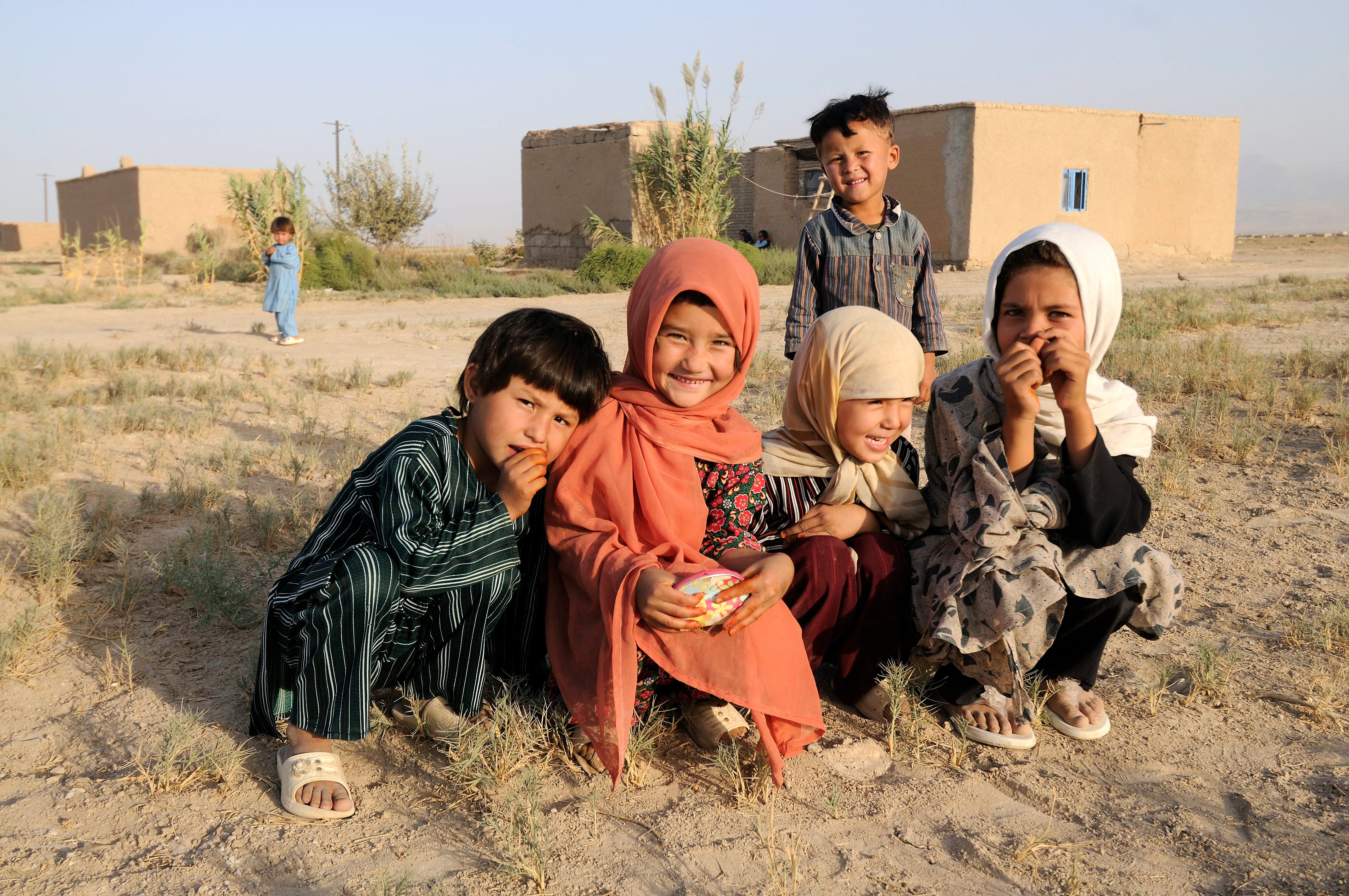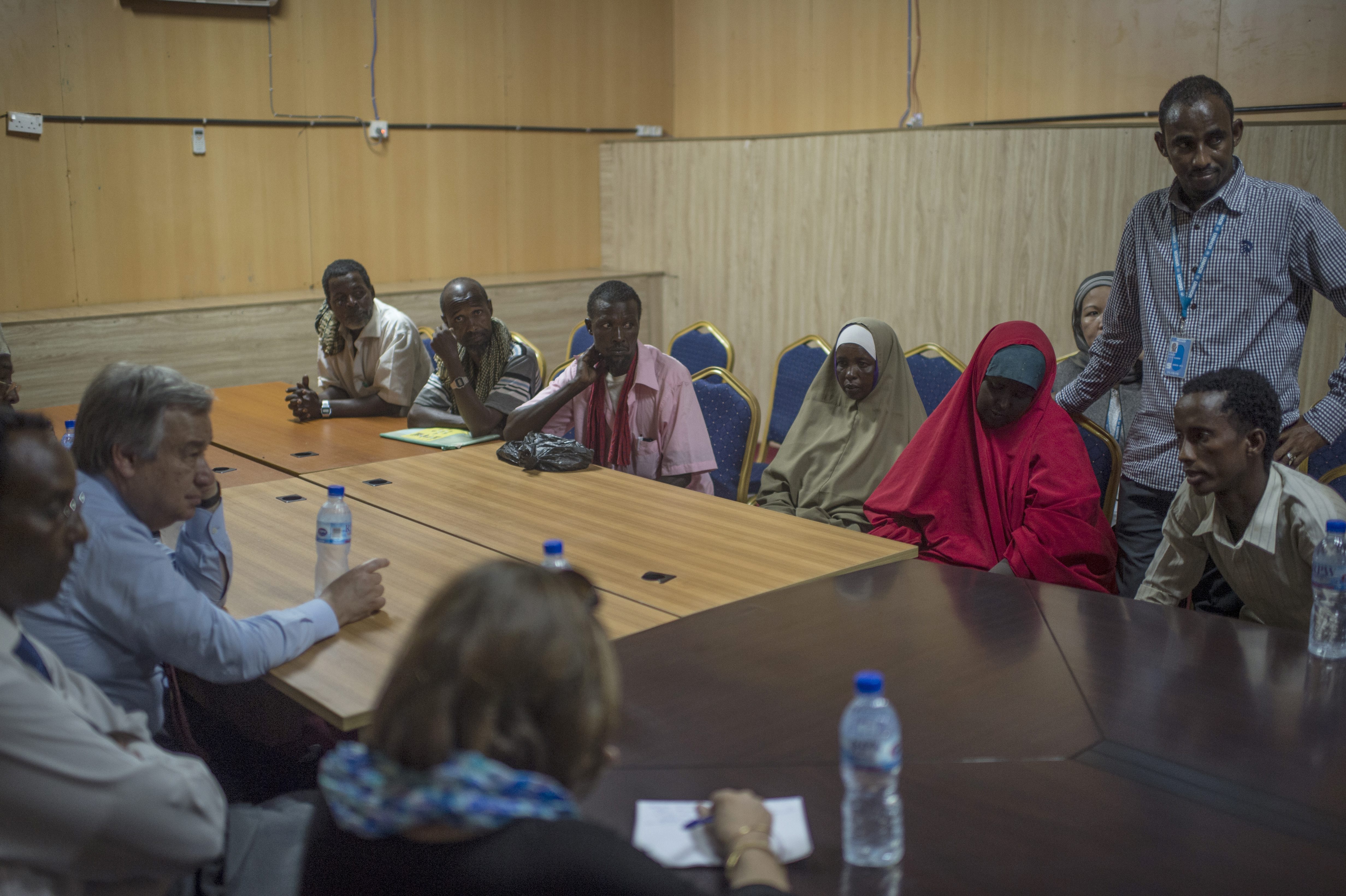Guterres praises Brazilian efforts to integrate refugees
Guterres praises Brazilian efforts to integrate refugees

BRASILIA, Brazil, November 9 (UNHCR) - UN High Commissioner for Refugees António Guterres has encouraged Brazilian President Luiz Inácio Lula da Silva to play a leading role in an international campaign for the promotion of tolerance and solidarity towards refugees, while praising the country's imaginative efforts to help refugees to integrate successfully.
"Brazil is already a regional leader on refugee issues. It is an important international player on a number of crucial issues and can also play a seminal role in combating racism and xenophobia worldwide," he told the President during their meeting in the Brazilian capital Brasilia on Tuesday.
The High Commissioner's visit to Brazil is the first he has made to a Latin American country since taking up his functions as head of the UN refugee agency in June. He decided to visit Brazil in recognition of what he has repeatedly described as its exemplary treatment of refugees both in terms of legislation, and its efforts to integrate refugees.
Twenty-year-old Gabriela [not her real name] is one of approximately 3,000 refugees in Brazil who have been helped by a network of institutions working to ensure refugees are not left to survive entirely on their own in their new country. She was once the Colombian and Pan-American roller-skating champion, but left all that behind when she was forced to flee Colombia three years ago.
In the Colombian capital Bogota, Gabriela had divided her time between studying computer engineering and roller-skating - her passion since she was nine years old. However, once she had attained national fame for her prowess at the sport, an armed group attempted to extort money from her family, threatening to kidnap, injure or even kill them if they didn't pay up.
In the end, Gabriela was forced to abandon her preparations for the roller-skating world championships, and go into hiding with her family.
"We were terrified. When I walked in the streets, I couldn't stop looking around me," Gabriela recalls.
With the Colombian authorities unable to assure the family's safety, they went first of all to Leticia, on the Brazilian border, before moving on by boat and then bus to the capital Brasilia, where they applied for asylum. Gabriela still cringes when she remembers the fear and uncertainty she experienced during the family's desperate flight to safety.
She also had to deal with the frustration of seeing her world championship dream evaporate, at the same time as adapting to life in a strange land and the family's dire financial situation after having been fairly comfortably off in Bogota.
Shortly after their arrival, however, the family became aware of the Migration and Human Rights Institute (IMDH), a local organization which conducts a range of activities designed to help refugees adapt to their new life in Brazil, as well as acting as one of the partners in a UNHCR-run scheme to provide training for border guards on human rights and asylum issues.
Border-training activities are an important component of the Borders of Solidarity initiative proposed in the Mexico Plan of Action - a regional initiative to help refugees and internally displaced people that was adopted in 2004. In addition, thanks to a programme UNHCR started in Brazil last year, 32 different partner organizations - including IDMH - are currently assisting asylum seekers and refugees in eight different cities in the Amazonian region.
The number of Colombian asylum seekers in Brazil has been steadily growing over the past five years. However, there are probably many more Colombians in need of protection in the country than appear in the statistics, since lots of people in refugee-like situations try to remain anonymous, especially in the border region. Because of this, UNHCR is trying to increase its presence along the 1,643 km border between Brazil and Colombia.
For Gabriela's family, it was a relief not only to receive a monthly subsistence allowance, but also to find a shoulder to lean on when the challenges seemed overwhelming. Their feeling of security was further increased after they were granted refugee status in 2003.
Supported by IMDH and UNHCR, Gabriela gradually began to get her new life in order. She started attending Portuguese classes, and in July was admitted to a graduate computer science course at the University of Brasilia. Perhaps most important of all, she began roller-skating again in one of the city parks.
Today, Gabriela is giving regular roller-skating classes to young students, and has set up a children's roller-skating team - which she has named UNHCR-IMDH. A few months ago, with the help of these two institutions, the team travelled to São Paulo for their first national competition. They won ten gold medals, five silver and one bronze. From time to time, she is also invited to teach roller-skating in São Paulo, which provides an additional source of income for her family.
"A few years back I would have given anything to go to the world championship," she says. "After all we went through though, that seemed just impossible. Now I have a new dream: taking the team to the world competition."
Things are looking up for the rest of the family too. Gabriela's father, Jaime, was one of the first recipients of a small loan under a credit system which UNHCR recently introduced. Also supported by IMDH, the family is now producing roller-skate boots and uniforms. The business is going well, helped by the name Gabriela has once again started to build for herself.
Jaime was one of a group of refugees of nine different nationalities who attended a meeting High Commissioner Guterres. He sounded very excited about the prospect of moving into a house he himself has built with materials bought with a loan from the UN refugee agency.
"Thankfully we are doing well. The help we have received from the different institutions has been crucial," he told Mr. Guterres. "But the most important thing for refugees like us, is to build our future with our own hands."
By Thais Bessa in Brasilia, Brazil






